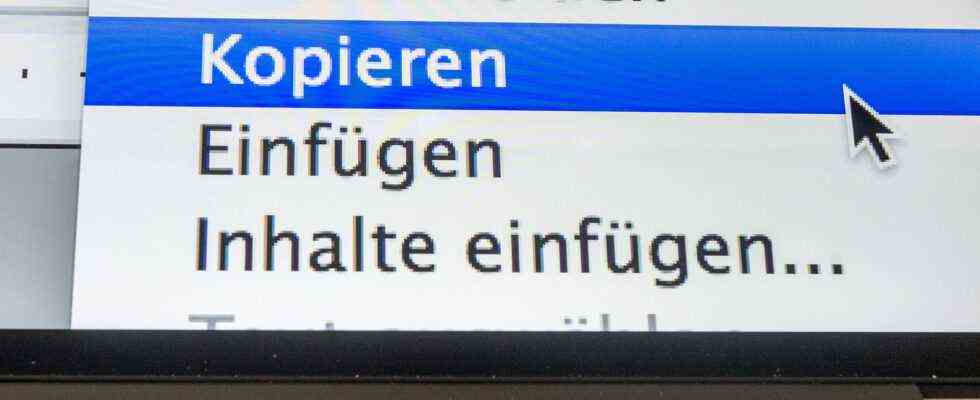fact finder
Status: 03.07.2021 5:43 a.m.
Many a politician has already lost his doctorate after a plagiarism affair. But what actually is plagiarism? And what about popular literature – as in the Baerbock case?
From Natalia Frumkina,
Editor ARD fact finder
This week, with the allegations against the Green Chancellor candidate Annalena Baerbock, a term on everyone’s lips – “plagiarism”. He can often be heard in connection with “copyright infringement”, he is countered with “reproduction of freely accessible facts”. But what is plagiarism anyway, what is copyright infringement and do you have to quote facts?
According to Duden, plagiarism is the “unlawful appropriation of thoughts, ideas or the like of another in an artistic or scientific field and their publication.” In general parlance, plagiarism relates primarily to scientific work. In the media-effective plagiarism scandals of recent years, it was therefore about dissertations by politicians – such as Karl-Theodor zu Guttenberg, Annette Schavan or Franziska Giffey, who lost the doctoral degrees obtained through their theses as a result of the plagiarism allegations.
Like Karsten Gulden, specialist lawyer for copyright and media law, to the ARD fact finder explained, one speaks of plagiarism when the adoption of text passages occurs deliberately. “This can always be assumed when the text is so close to the original that it is logically impossible that the author was not aware of this.”
Not always a copyright infringement
In July 2002, the German University Association agreed in a resolution on principles of good academic work. It states that plagiarism is present when “third-party texts are taken over in full or in part, literally or almost literally, and presented as a separate scientific achievement. Such a procedure not only contradicts good scientific practice, it is also a form of intellectual theft and thus a copyright infringement. ”
A violation of the scientific principles can therefore be accompanied by a copyright infringement, but does not have to be. “Different standards apply here: Even with scientific work, the so-called work quality must be given for a copyright infringement, so the work must be particularly creative or original,” explains lawyer Gulden. “Special features are then the freedom to quote and use. The scientific regulations are stricter in this respect, so that even texts that are not of a work quality according to copyright standards still have to be marked.”
For example, the former Federal Minister zu Guttenberg was confronted with an investigation into copyright infringement, which was ultimately discontinued.
Very short passages of text
The Austrian media scientist Stefan Weber currently points to some text passages in Baerbock’s book “Now. How we renew our country” that would be similar to other sources. The publication is not an academic text for which strict scientific work criteria apply, but rather popular scientific literature. Nevertheless, copyright infringements can of course also take place outside of academic texts.
The lawyer Christian Schertz, whom the Greens involved in the case, writes in a statement: “I cannot begin to recognize a copyright infringement, since the few passages referred to are nothing other than the reproduction of the generally known Facts as well as political views. ”
In fact, information as such – for example, which countries were included in the EU during the eastward expansion in 2004 – is free of copyright. “What is important, however, is how the facts are presented,” explains Gulden. “If further formulations have been added or the facts are presented in a particularly creative way, the type of presentation cannot simply be adopted.” The text could then be protected because it was designed in a particularly creative way.
The objectionable passages in Baerbock’s book are very short text excerpts. According to Gulden, this increases the requirements as to whether or not they are worth protecting at all. In cases of doubt, however, the courts would have to decide whether there was any copyright infringement – but only if the authors themselves assert their claims.

